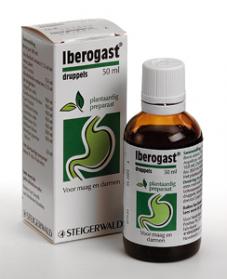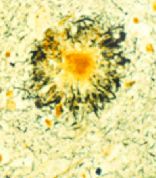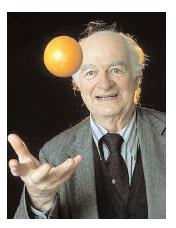 STW 5 (Iberogast) is an herbal preparation containing 9 plant extracts (including Iberis amara [Candytuft] peppermint, and chamomile). In this study, it was better than placebo in treating functional dyspepsia — a chronic or recurrent pain or discomfort centered in the upper abdomen. Continue reading Treating functional dyspepsia with STW 5
STW 5 (Iberogast) is an herbal preparation containing 9 plant extracts (including Iberis amara [Candytuft] peppermint, and chamomile). In this study, it was better than placebo in treating functional dyspepsia — a chronic or recurrent pain or discomfort centered in the upper abdomen. Continue reading Treating functional dyspepsia with STW 5
Monthly Archives: July 2007
Should cognitive behavioral therapy be added to antidepressant therapy?
 A study in the British Medical Journal concludes that adding weekly cognitive behavioral therapy (CBT) to treatment with the selective serotonin reuptake inhibitor (SSRI) fluoxetine (Prozac) was no more beneficial for depressed adolescents than medication alone.
A study in the British Medical Journal concludes that adding weekly cognitive behavioral therapy (CBT) to treatment with the selective serotonin reuptake inhibitor (SSRI) fluoxetine (Prozac) was no more beneficial for depressed adolescents than medication alone.
A closer look suggests the Adolescent Depression Antidepressant and Psychotherapy Trial (ADAPT) is not the definitive study on this subject.
Here’s why. Continue reading Should cognitive behavioral therapy be added to antidepressant therapy?
Warning labels on your clothes
 Does this come under the heading of complementary or alternative medicine?
Does this come under the heading of complementary or alternative medicine?
According to Professor Mike Lean (yes, that’s really his name), clothes for fat children should come with information about where they can get advice to help them lose weight.
12/15/06 23:21 JR
Anael, his tumors, and the Hippocrates Health Institute
 Anael L’Esperance-Nascimento (photo) is the little boy from Quebec whose parents refused a second round of chemotherapy for his brain and spinal cord tumors. Instead, Anael will be treated at the Hippocrates Health Institute in Florida.
Anael L’Esperance-Nascimento (photo) is the little boy from Quebec whose parents refused a second round of chemotherapy for his brain and spinal cord tumors. Instead, Anael will be treated at the Hippocrates Health Institute in Florida.
The intent of this post is to review wheatgrass, “an integral part” of the Hippocrates treatment. Continue reading Anael, his tumors, and the Hippocrates Health Institute
Experts respond to the negative AHRQ report on meditation
 The report by the University of Alberta Evidence-based Practice Center (UAEPC) after reviewing the published literature on meditation practices for health were published here and discussed here.
The report by the University of Alberta Evidence-based Practice Center (UAEPC) after reviewing the published literature on meditation practices for health were published here and discussed here.
The authors found so many flaws in the design of the studies that “conclusions on the effects of meditation practices in healthcare cannot be drawn based on the available evidence.” The report was funded by the NIH Agency for Healthcare Research and Quality (AHRQ). Continue reading Experts respond to the negative AHRQ report on meditation
Natural Products Association will test Chinese raw materials
 David Seckman, executive director and CEO of the Natural Products Association (NPA) announced. “By testing raw materials in China, we’re adding another layer of consumer protection.” Continue reading Natural Products Association will test Chinese raw materials
David Seckman, executive director and CEO of the Natural Products Association (NPA) announced. “By testing raw materials in China, we’re adding another layer of consumer protection.” Continue reading Natural Products Association will test Chinese raw materials
Insufficient proof of efficacy for marijuana spray to permit sale in the UK
 GW Pharmaceuticals was able to prove that Sativex, their marijuana oral spray product, was safe and reliably contained sufficient tetrahydrocannabinol. But proof of effectiveness was lacking, in the view of the UK’s Medicines and Healthcare products Regulatory Agency (MHRA) Continue reading Insufficient proof of efficacy for marijuana spray to permit sale in the UK
GW Pharmaceuticals was able to prove that Sativex, their marijuana oral spray product, was safe and reliably contained sufficient tetrahydrocannabinol. But proof of effectiveness was lacking, in the view of the UK’s Medicines and Healthcare products Regulatory Agency (MHRA) Continue reading Insufficient proof of efficacy for marijuana spray to permit sale in the UK
The Volcano alternative means of delivery of inhaled Cannabis sativa
 An earlier study (reported here, discussed here) showed that the Volcano vaporization device is a reliable way to achieve lung concentrations of marijuana.
An earlier study (reported here, discussed here) showed that the Volcano vaporization device is a reliable way to achieve lung concentrations of marijuana.
Now, researchers from the University of California and San Francisco General Hospital confirm that vaporization of cannabis is a safe and effective mode of delivery of tetrahydrocannabinol (THC). They think the device should be used in future studies of THC. Continue reading The Volcano alternative means of delivery of inhaled Cannabis sativa
Soft drinks and the risk of the metabolic syndrome
 Yes, there’s an association. And it doesn’t seem to matter whether the soda pop you drink is “regular” or diet.
Yes, there’s an association. And it doesn’t seem to matter whether the soda pop you drink is “regular” or diet.
But can we rely on these findings? Continue reading Soft drinks and the risk of the metabolic syndrome
Slowing cognitive decline with omega-3 fatty acids

The same study showed no effect in people with more advanced cases. Continue reading Slowing cognitive decline with omega-3 fatty acids
Benefits from creatine reported outside sports medicine
 In patients with polymyositis and dermatomyositis — conditions characterized by weakness and swelling of limb and neck muscles — taking creatine supplements enhanced the benefit of exercise. Continue reading Benefits from creatine reported outside sports medicine
In patients with polymyositis and dermatomyositis — conditions characterized by weakness and swelling of limb and neck muscles — taking creatine supplements enhanced the benefit of exercise. Continue reading Benefits from creatine reported outside sports medicine
“China-free” labels for dietary supplements
 Three months ago, I predicted the China pet food contamination would have implications for the supplements industry.
Three months ago, I predicted the China pet food contamination would have implications for the supplements industry.
Now, Food for Health International, which sells through the Internet, has announced it will start labeling boxes for its dietary supplements with a sticker that reads “safe” and “China-free.” Continue reading “China-free” labels for dietary supplements
The placebo component of the homeopathic response
 There’s increasing awareness that the homeopathic consultation is itself a therapeutic intervention that contributes to the outcome of homeopathic treatments.
There’s increasing awareness that the homeopathic consultation is itself a therapeutic intervention that contributes to the outcome of homeopathic treatments.
So, how important is it?
Continue reading The placebo component of the homeopathic response
Horny goat weed to prevent bone loss during late postmenopause
 Horny goat weed, also known as epimedium and yin yan huo, is a source of phytoestrogens.
Horny goat weed, also known as epimedium and yin yan huo, is a source of phytoestrogens.
Researchers at the Chinese University of Hong Kong report success using epimedium to prevent bone loss in postmenopausal women. Continue reading Horny goat weed to prevent bone loss during late postmenopause
Coffee and psoriasis
 “Patients with psoriasis who drink coffee frequently respond better to treatment with methotrexate and sulfasalazine.” This is the conclusion reported by Dr. Yolanda Helfrich during her presentation at the annual meeting of the Society for Investigative Dermatology in Philadelphia. Continue reading Coffee and psoriasis
“Patients with psoriasis who drink coffee frequently respond better to treatment with methotrexate and sulfasalazine.” This is the conclusion reported by Dr. Yolanda Helfrich during her presentation at the annual meeting of the Society for Investigative Dermatology in Philadelphia. Continue reading Coffee and psoriasis
Is there any justification to take high doses of vitamin C?
 Let’s see what the Cochrane Collaboration reveals. Continue reading Is there any justification to take high doses of vitamin C?
Let’s see what the Cochrane Collaboration reveals. Continue reading Is there any justification to take high doses of vitamin C?
More positive results using probiotics to treat irritable bowel syndrome
![]() Probiotics are now used by 35% to 40% of the US population routinely and with increasing frequency in patients with irritable bowel syndrome (IBS).
Probiotics are now used by 35% to 40% of the US population routinely and with increasing frequency in patients with irritable bowel syndrome (IBS).
Dr. Brian Lacy from Dartmouth Medical School in New Hampshire reports on the latest probiotic research from the recent Digestive Diseases Week meeting. Continue reading More positive results using probiotics to treat irritable bowel syndrome
What is the effect of vitamin D blood levels on colon and rectal cancer?
![]() Low vitamin D status has long been implicated in colorectal cancer.
Low vitamin D status has long been implicated in colorectal cancer.
This study looks at the relation between blood levels of vitamin D and the risk of colon, colorectal, and rectal cancer in men and women. Continue reading What is the effect of vitamin D blood levels on colon and rectal cancer?
The pendulum swings away from lycopene as protection from cancer
 Here’s what the FDA found in their evaluation of the evidence linking tomatoes or tomato-based foods and lycopene, with reduced cancer risk. Continue reading The pendulum swings away from lycopene as protection from cancer
Here’s what the FDA found in their evaluation of the evidence linking tomatoes or tomato-based foods and lycopene, with reduced cancer risk. Continue reading The pendulum swings away from lycopene as protection from cancer
Clarifying milk thistle nomenclature
 It’s easy to fall into the trap of using names incorrectly, assuming that differences are unimportant.
It’s easy to fall into the trap of using names incorrectly, assuming that differences are unimportant.
Milk thistle extracts are being studied to treat cancer and lessen the side effects of chemotherapy. Here’s what we should know, terminology-wise. Continue reading Clarifying milk thistle nomenclature